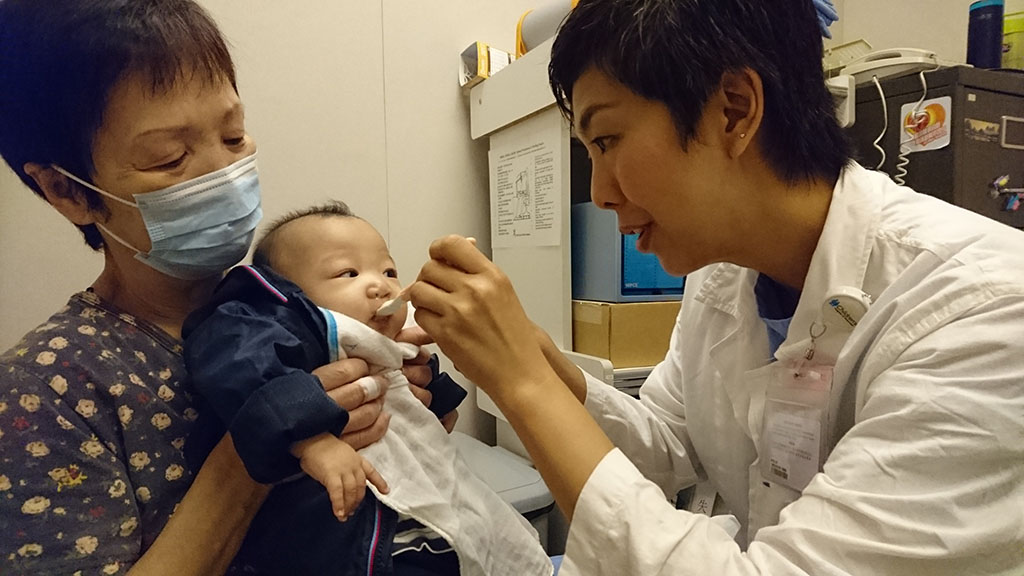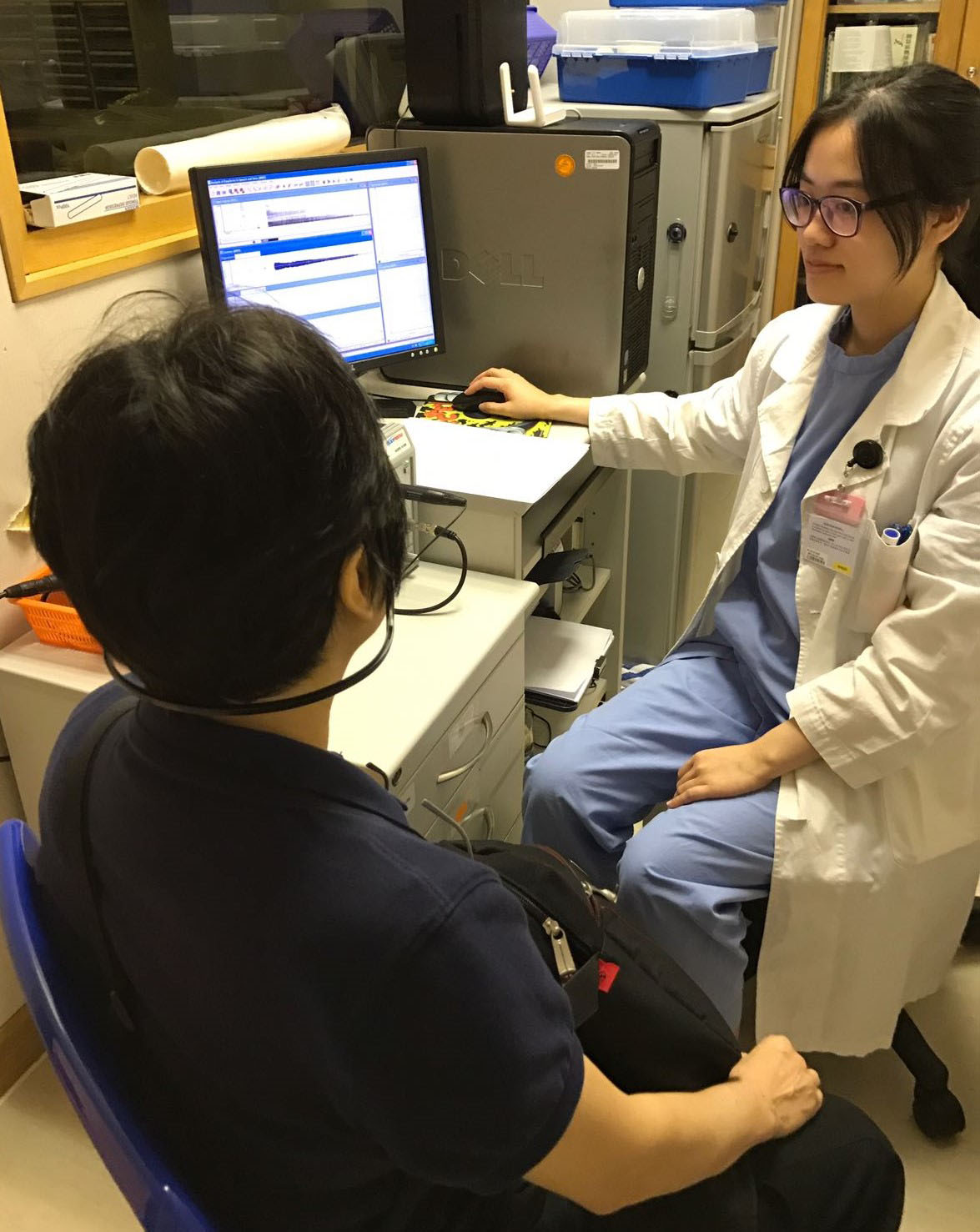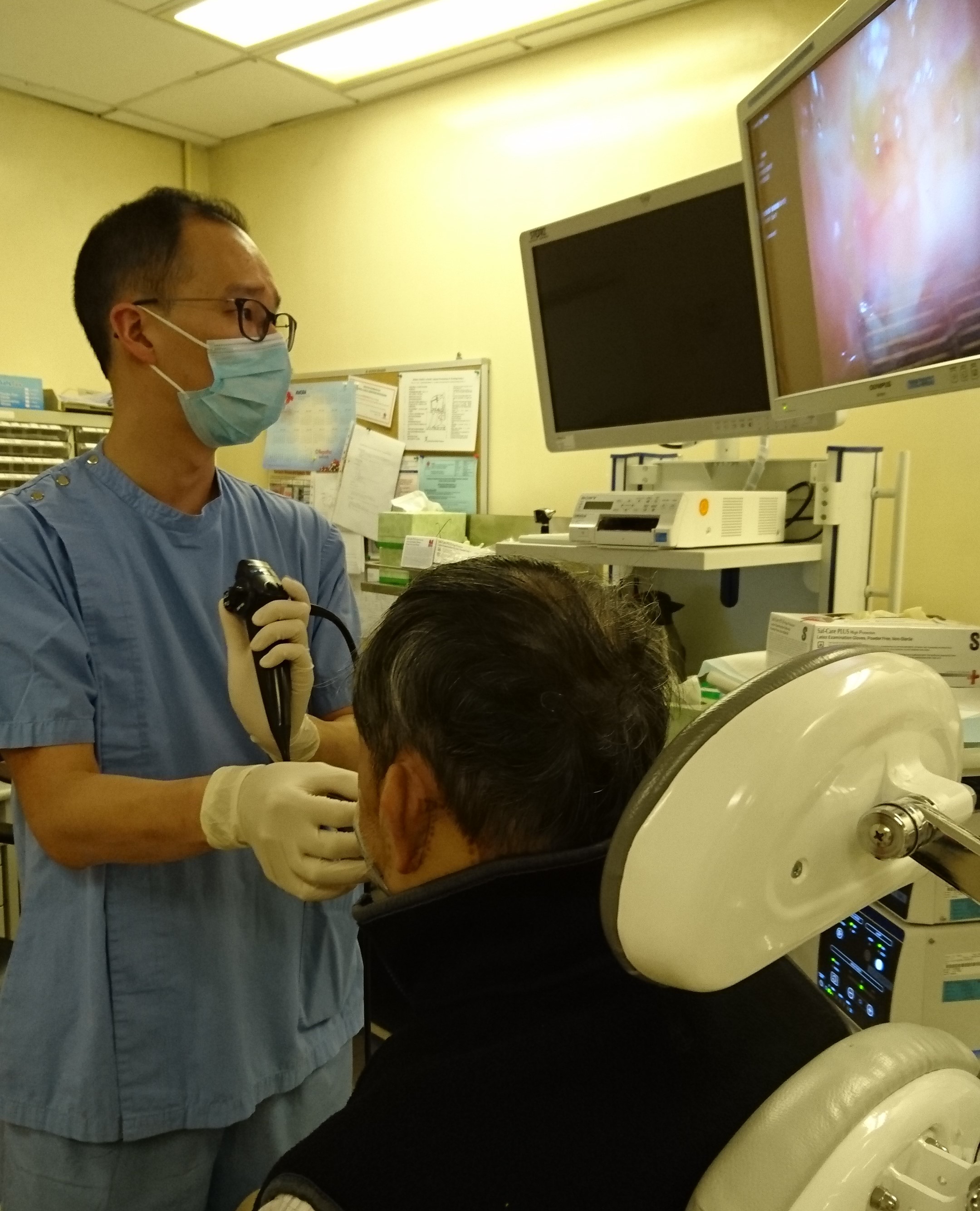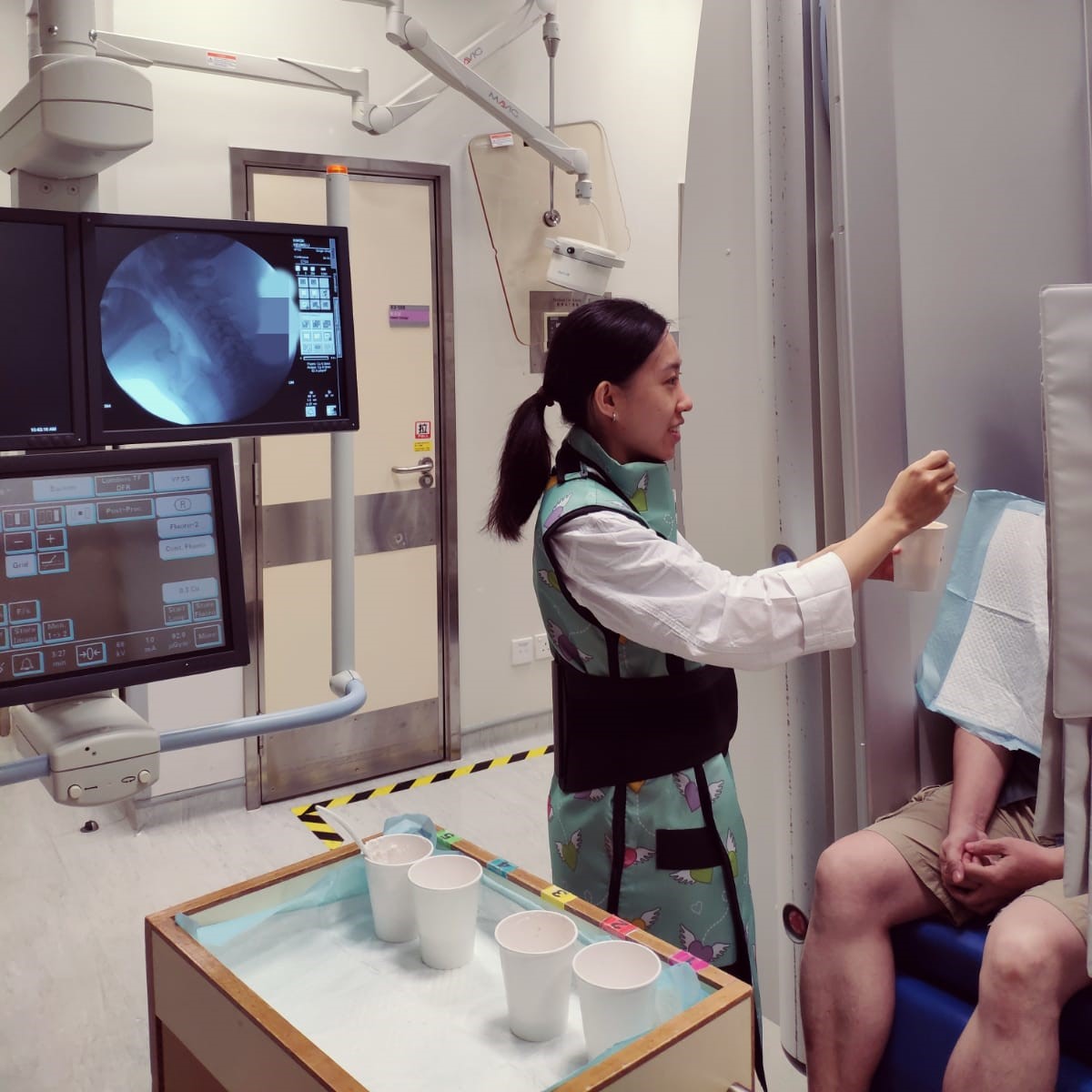
Speech therapy is a field of service that assesses, manages and provides rehabilitative training to patients suffering from speech, language and swallowing disorders. Through various modalities of training, patient’s daily functioning in terms of communication and feeding can be maximized. This will in turn improve their quality of life.
Our Vision
- Manage with evidence
- Care with empathy
Our Mission
- To provide high quality speech therapy services in accordance to international standards
- To facilitate effective communication of our patients
- To establish safe and efficient feeding and swallowing
- To improve the quality of life of our patients
Our Services



Queen Mary Hospital provides inpatient, outpatient and daypatient speech therapy service. Speech therapists manage patients with the following communication and / or swallowing problems:
- Difficulty in verbal comprehension and expression, difficulty in speech production, as well as swallowing disorders subsequent to neurological diseases (e.g. Parkinson’s disease, stroke) or head injury
- Voice problem, articulation disorder or swallowing difficulty after surgery and/or radiation therapy to the head and neck region.
- Communication and swallowing problems in tracheostomized patients
- Communication and swallowing problems of cancer patients
- Feeding and swallowing disorders of newborn and paediatric patients with various congenital conditions, such as congenital heart disease, syndromes involving gastrointestinal tracts or airway, etc.
- Voice problem resulting from vocal abuse / misuse and trauma to the vocal cords / recurrent laryngeal nerves
- Voice problem, resonance problem or articulation problem secondary to oromaxillofacial abnormalities and trauma
- Communication disorder resulting from congenital or acquired hearing impairment
- Speech and language disorder as a result of developmental disorder (e.g. autism).
- Paediatric articulation disorder
- Fluency disorder
- Orofacial myofunctional disorder
Rehabilitative training is also provided to patients during their stay in the hospital. Our outpatient clinic see patients who are discharged from the hospital but still require continuous speech therapy training, as well as receiving referrals from Family Medicine Clinics, specialist outpatient clinics and private practitioners (with private charge).